To celebrate International Women’s Day 2024, we are excited to share a collection of blog posts showcasing the work of some of our new Associate Editors. In each post, our editors discuss their experiences in ecology, as well as what this year’s theme, ‘Inspire Inclusion‘, means to them.
Dr María Felipe-Lucia (she/her)
What work do you do?
My research seeks to understand the drivers and consequences of social-ecological interactions and its multiple implications on sustainability, considering both ecological and social aspects such as equity in the access to ecosystem services / nature’s contributions to people. In particular, I investigate the effect of land use intensification on the relationships between biodiversity and ecosystem services, on the synergies and trade-offs between services, and on the social relationships between actors. I analyse these relationships at multiple spatial scales and model social-ecological scenarios to inform land management and restoration policies.
How did you get into ecology?
I have always been passionate about rivers, and my main motivation was to develop river restoration projects involving the local population from the design of the project to its implementation, which enhances chances of restoration success. Then, I realized the need to better understand the social aspects of ecology and therefore I decided to focus my work on the field of social-ecological research.
What is your proudest achievement?
I´m very proud of being able to work in the place I want and on the topics I like.
What does ‘Inspire Inclusion’ mean to you?
To me, that means that my work should help inspire others about how to be more inclusive in all facets of life, from work to home.
Who inspires you?
I´m inspired my living close to nature and connecting through outdoor activities. To me, it is especially inspiring the opportunity to look at the landscape around me from high places, being it a mountain peak, a scenic point view or an aeroplane. I´m also inspired by more senior women scientists in the way they opened paths and combined personal and professional life.
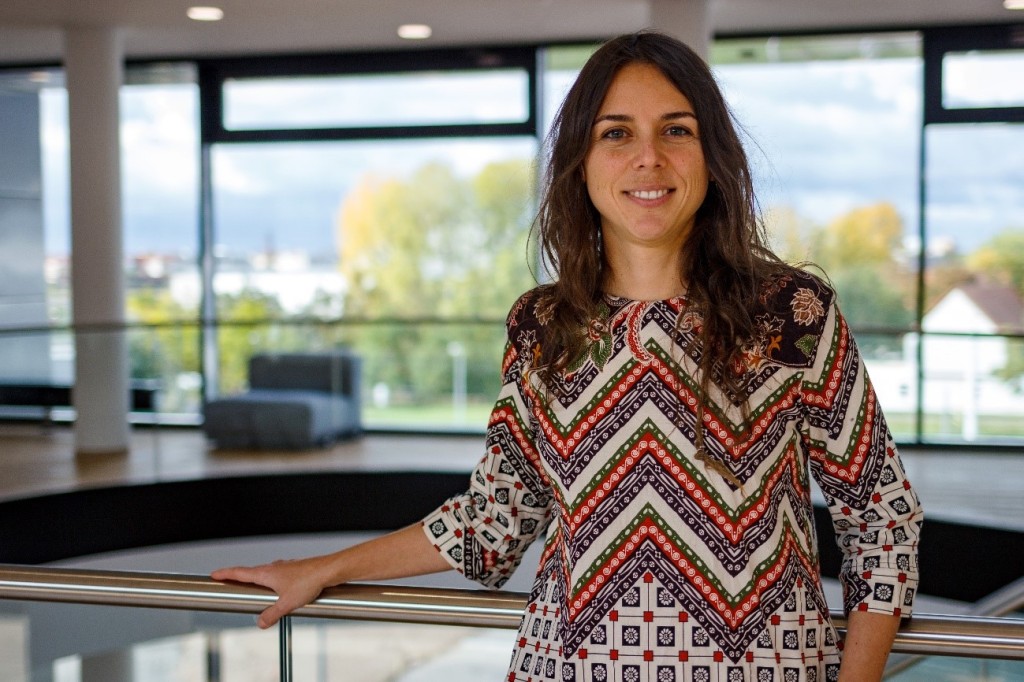
Dr Caroline Howe
What work do you do?
I am a Senior Lecturer in Environmental Social Science, Imperial College London. My work explores the relationship between people and nature, with a focus on the nexus between biodiversity and health. In particular, I am interested in how to ensure that solutions to the biodiversity and climate crises are equitable and just – this has included explorations around the concept of dignified development, as well as the role of gender within the biodiversity-climate-health nexus.
How did you get into ecology?
I always loved animals growing up. I originally wanted to be a zoologist, but then became increasingly curious about the role of people in conservation and biodiversity loss/protection. Overtime, I became more of a social environmental scientist, with a particular focus on people and nature, and people as part of the socio-ecological system.
What is your proudest achievement?
Several years ago, I was selected as one of the Lead Authors for the IPBES Nexus Assessment, which recognises me as one of the world’s leading experts in biodiversity, health, water, food, and climate. I have always wanted to work on an IPBES Assessment, as you have the potential to change the way the world sees the role of biodiversity within our sustainable future and to influence policy making at the international level. I have worked hard to achieve this position, whilst concurrently tackling the challenges of motherhood – having had four daughters over ten years. Whilst I can’t say I genuinely have everything – there are still many trade-offs – I have a lot and I am very proud of this balance I have achieved.
What does ‘Inspire Inclusion’ mean to you?
As we break down barriers, and open doors to new opportunities, we must never pull up the ladder behind us but must reach down and pull people up with us. I teach and supervise as part of my university role, and one of the reasons I enjoy this is to inspire a new generation of people who may not traditionally believe that academia, or conservation or sustainable development is for them, but who have so much to offer and will ultimately be the future of these fields of research/job sector.
Who inspires you?
My mother has always been an inspiration to me. She was a working mum of two, who went on to achieve amazing things within the field of Art History and Textiles (she was Deputy Director of the Whitworth Art Gallery in Manchester). Within my own field, I was very lucky to have been supervised by Dame Professor E.J. Milner-Gulland, who has undertaken pioneering work in conservation and to have worked with the late Dame Professor Georgina Mace, who was one of the founders of the IUCN Red List and IPBES. Both women were an incredible inspiration. My four daughters constantly inspire me to continue to break glass ceilings within my own field and the university academic sector, to ensure that they and other young women and girls can continue to forge their own paths in the future.
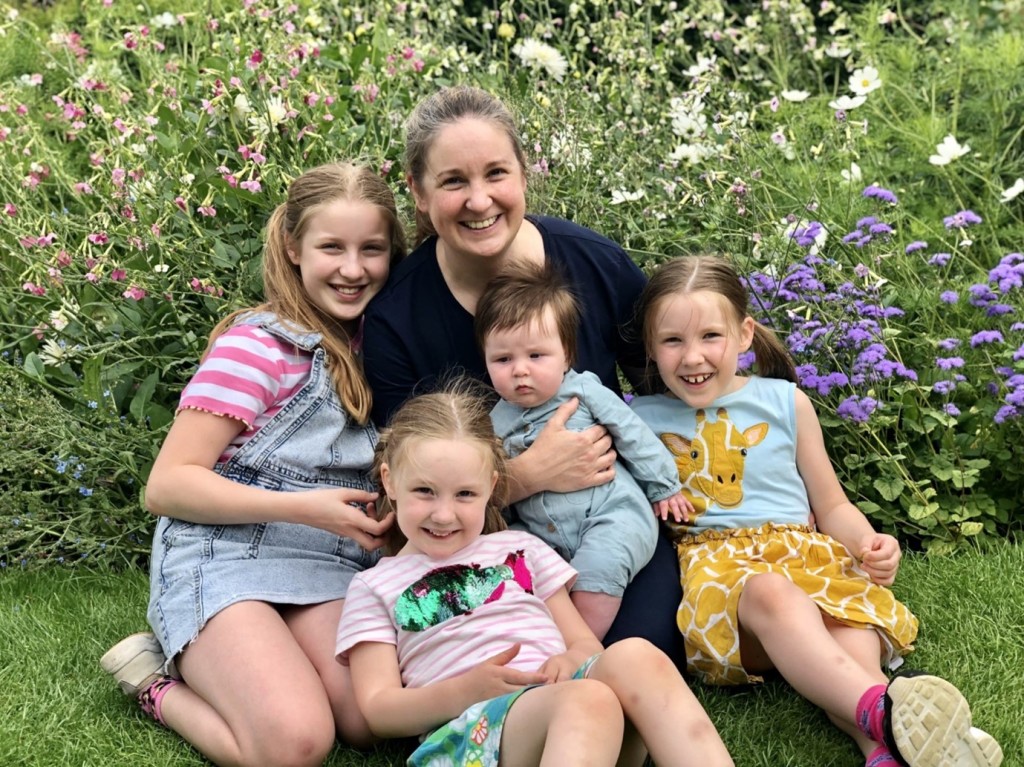
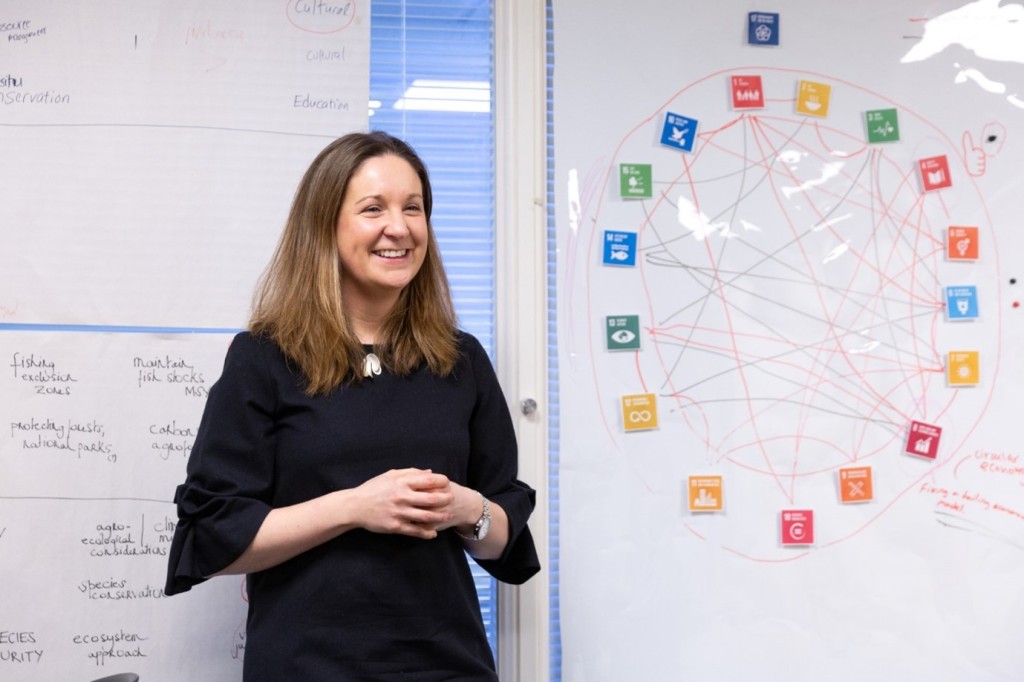
Dr Karen Mustin (she/her)
What work do you do?
I am an interdisciplinary conservation scientist with a background in ecology. I am interested in social and environmental sustainability and the links between biodiversity conservation and human well-being. My current research is focussed in two key areas: 1) social equity in protected area governance; and 2) ecology and conservation of Neotropical non-forest ecosystems, particularly Amazonian savannahs.
How did you get into ecology?
I am a lifelong biophile, but my career in conservation began with the failure to get good enough A-level grades to be a vet! That led to a year out before going to Newcastle University to study Zoology, where Ecology was passionately and inspiringly taught by Gordon Port. More than 20 years later I can still remember his lectures on parasitoids using scenes from the movie Alien! From there I went on to do an Ecology focussed PhD at the University of Aberdeen, looking at the impacts of climate change on bird populations. I worked with a lot of great people there, but I will be forever grateful for the mentorship and friendship of the amazing Steve Redpath, who helped shape the way I see ecology, conservation and science in general.
What is your proudest achievement?
My daughter, Maya! Being a mother in academia is still very challenging and I think we have a long way to go before it is a truly inclusive space for those of us with care responsibilities, be that with children or other loved ones. But I am fortunate to work with many supportive colleagues who help me achieve a balance. I am also proud to be a role model for my students, many of whom have told me that seeing me do it has helped them to feel like it is possible to be a scientist and have a family.
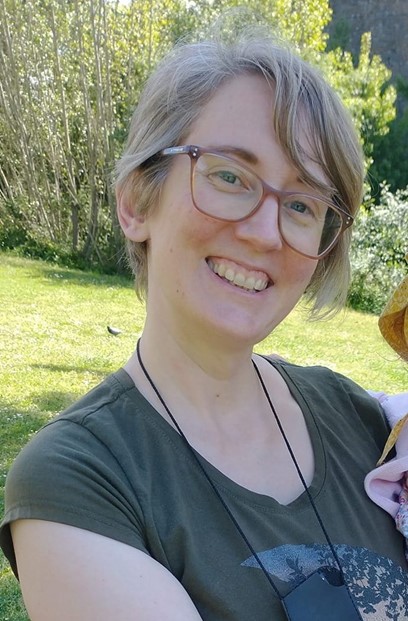
What does ‘Inspire Inclusion’ mean to you?
Being serious about inclusion in academia means examining the structures and systems we have in place, and the ways in which they systematically exclude many people. It’s not solely about increasing diversity (though that is of course important!) but rather about fixing a broken system so that it is a safe and happy environment for all. Many of the changes we need to make to include, for example, disabled, neurodiverse, LGBTQIA+, Black or Indigenous colleagues, would make the environment better for us all. It’s win-win.
Who inspires you?
My daughter, my students. Young people in general! We are facing terrifying challenges in the now very near future, and it is hard not to lose hope. But I see young people engaging with these problems, fighting for their rights and their future, and I am inspired to keep fighting alongside them.
Dr Rachel Oh (she/her)
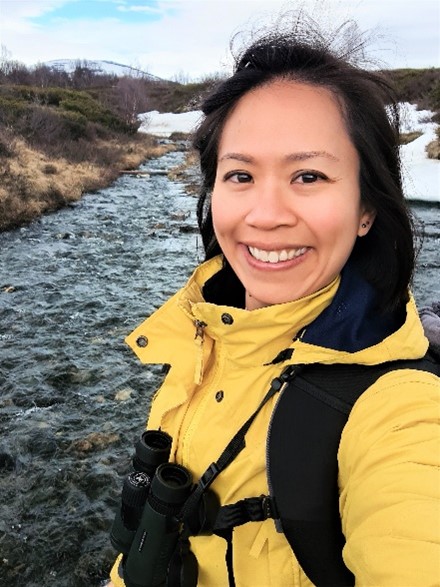
Hello everyone! I am thrilled to share a slice of my ecology journey with you as we celebrate International Women’s Day. My name is Rachel but I also respond to 瑞颖 and ரேச்சல். While originally from Singapore, I obtained my PhD from the University of Queensland in Australia, and now work at the Helmholtz Centre for Environmental Research in Germany.
What work do you do?
As a conservation ecologist, I am passionate about tackling today’s biodiversity, environmental and human wellbeing crisis. My approach is transdisciplinary and target-oriented, blending disciplines of ecology, geography, psychology and public health. I aim for research that is not just “interesting” but also practical, and which directly addresses the needs of communities, practitioners and policymakers. Of my varied research interests, a current one focuses on the development of nature-based solutions to mitigate the negative impacts of climate change and urbanization on human health and wellbeing. Recently, we demonstrated that mature forests play a crucial role in reducing urban heat stress during extreme heat events in Europe – suggesting that the design of urban greenspaces should be highly diverse and structurally complex (e.g. have many types of trees that vary in age and heights) to enhance their effectiveness. I am particularly keen to fill knowledge gaps by working in regions experiencing rapid urbanization and health challenges due to biodiversity loss, and to amplify scientific contributions from non-English speaking regions often overlooked in literature.
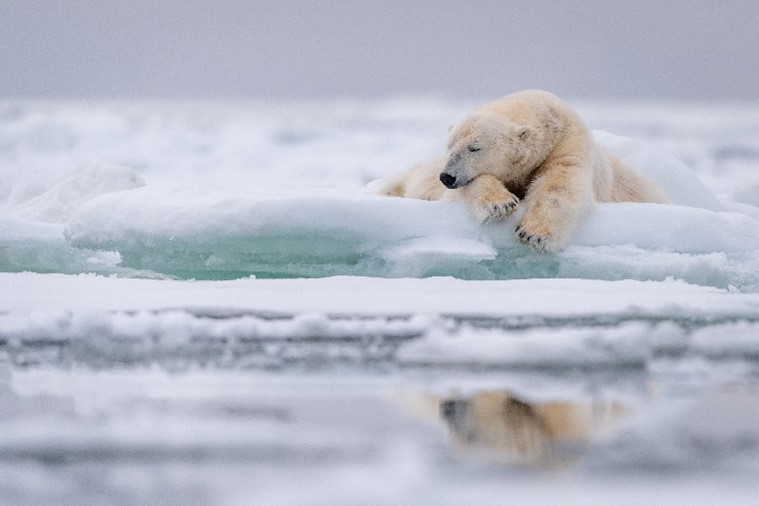
How did you get into ecology?
Perhaps this was a mix of upbringing and my innate attraction for nature. My family loved exploring off-the-beaten-path destinations, igniting my love for nature from an early age. I remember witnessing terrestrial red crab (Gecarcoidea natalis) migrations on Christmas Island, learning how to forage for food from indigenous communities in Australia, floating above coral reefs in Indonesia, and hiking in the Himalayan Range. I was also the privileged few who realized very early what I truly enjoyed doing. While I spent some time as an undergraduate trying to nurture a love for microbiology and molecular cell research, I quickly realized that spending long hours culturing bacterial colonies and rat heart cells did not resonate with me. And so I went over to the “dark” side of ecology. I have since worked in/with different natural ecosystems and taxonomic groups across Asia, Australia and Europe. I have collaborated with local communities and stakeholders to restore mangrove forests in Asia, and have studied natural forest succession on American Samoa. I have also been involved in efforts to reduce the risk of extinction among bird species in Singapore, and to understand how bird communities respond to ecosystem changes in outback Australia.
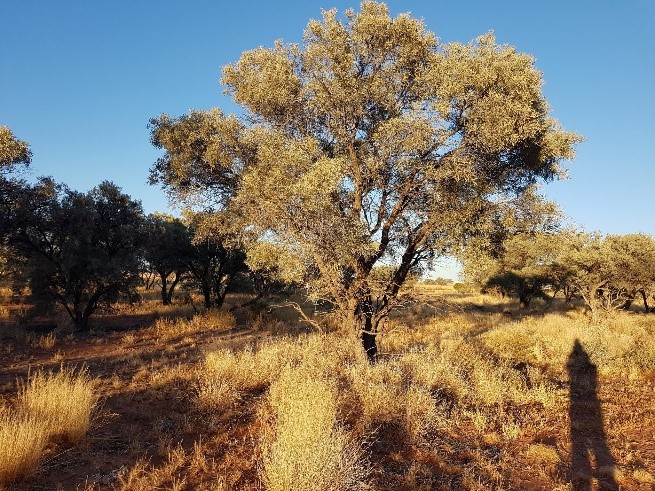
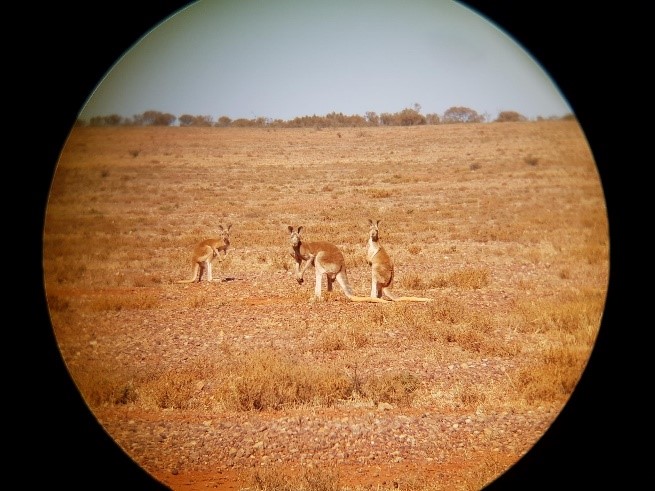
Despite the harsh conditions of the Australian outback, it hosts a remarkable diversity of wildlife. Rachel always captures distant objects through her binoculars using her phone camera (as she does not own a proper camera), resulting in the circular vignette (Credit: Rachel Oh)
What is your proudest achievement?
It is challenging to pinpoint my proudest achievement, but I take pride in living each day with intention, striving to make a positive impact no matter how small. This is why championing for greater diversity and inclusion in all aspects of society, beyond academia, is important.
What does ‘Inspire Inclusion’ mean to you?
To me, ‘Inspire Inclusion’ means fostering a world where everyone feels valued and respected, regardless of gender, race, or identity. It is about creating an environment that celebrates diversity, and which empowers individuals to be themselves without fear of discrimination or exclusion. I am grateful for the inspiring individuals who surround me, each with their own unique qualities. Your passion for life, the bravery, tenacity and wisdom you exhibit in navigating challenging times, your kindness and generosity towards each other, and the unwavering support to build each other up have been truly inspiring.
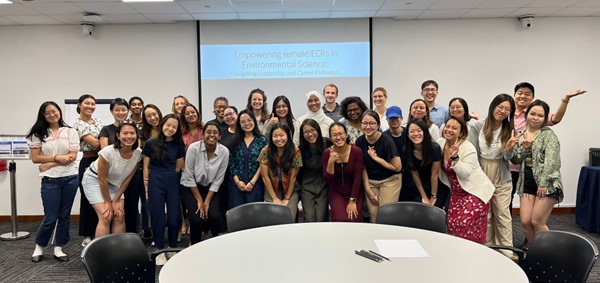
Let us continue to be allies in advocating for equal opportunities, and to build a world where everyone can thrive and succeed. Happy International Women’s Day!